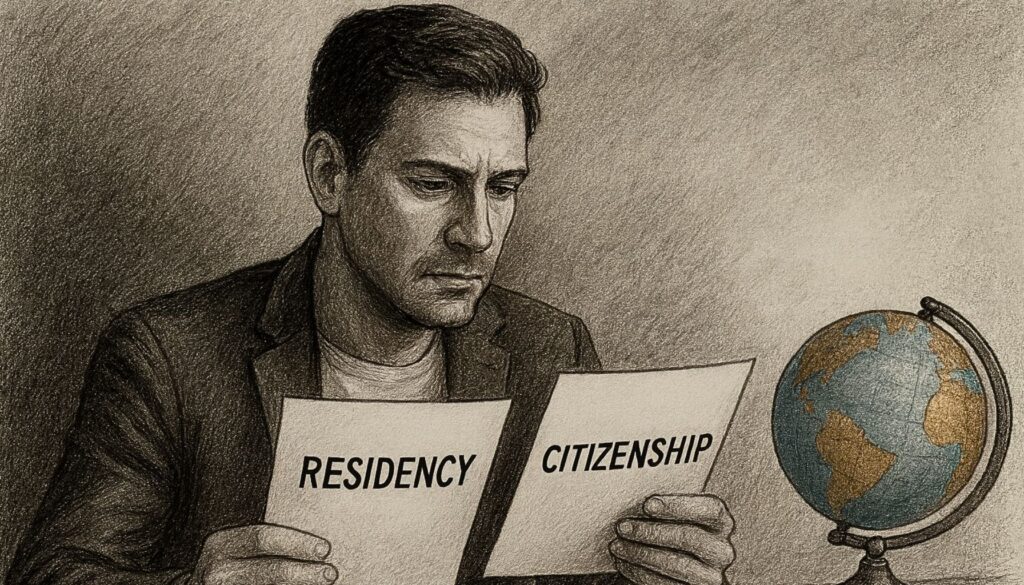If you’re thinking how to avoid taxes with your international company, you know that navigating the world of international tax regulations is a trap for many. Imagine this: thousands of people and companies create tax structures abroad every year, and unknowingly, they’re getting into trouble. Mistakes, accidental tax fraud, penalties… all because they don’t have the correct information. It’s not just about paying fewer taxes, it’s about doing it right.
What many don’t know is that by trying to manage their international finances without a clear understanding of the regulations, they can end up in a very complicated situation. Tax laws vary drastically from one country to another, and what might seem like a smart strategy in one place could be completely illegal in another. And we’re not just talking about losing money, but facing serious legal problems (check out this blog) that can ruin reputations and businesses.
That’s why, my friend, today I bring you a guide on the necessary steps to avoid taxes by creating an international company with 4 essential steps to help you optimize taxes… I’m sure that what we’ve prepared for you will help…
Indice del artículo
Steps to avoid taxes by creating an international company:

1. Research and Planning to Create Your International Company
Before diving into the adventure of setting up an international company to avoid taxes, you need to do your homework. And no, I’m not talking about spending a couple of hours on Google and thinking you’re an expert. You need thorough research. Come on, this is not child’s play!
First, you must understand the tax and commercial regulations of the country where you plan to establish your international company. Each country has its own rules of the game (check out this blog), and what works in one place to avoid taxes can be a disaster in another.
For example, creating an LLC in the United States might seem like an easy process, but it has its complexities. You need to understand how LLCs are structured and how tax obligations are managed to avoid making mistakes when trying to avoid taxes (check out this blog).
Imagine you decide to open an LLC in Delaware. Great, because it’s famous for its business-friendly laws. But did you know that even if you don’t operate in Delaware, you still need to meet certain tax requirements? For example, you will have to pay an annual fee called the “Franchise Tax” just for having the LLC there, even if your business operates in another country. Just avoiding this step can save you more than €300 a year.
And this is just the beginning. Another example is closing an LLC when it is no longer in use. Most tax advisors might not pay attention when you want to deactivate your company, but this can result in personal penalties of more than $25,000…

2. Choosing the Legal Structure for Your International Company
Alright, Nomad, now that you’ve done your research and know all about the tax and commercial laws of the destination country, it’s time to make a crucial decision: choosing the right legal structure for your business. It’s like picking the perfect outfit for an important occasion; you need something that fits your needs well and makes you look amazing.
For example, an LLC in a country with territorial taxation (check out this blog) can be incredible. If you create an optimal tax structure in the right place, you can pay 0% in taxes. But what happens if you create an LLC in a country like Spain?
Things change here, as Spain has worldwide taxation, meaning your LLC would be transparent and have to pay taxes. The same goes for companies in Estonia, Cyprus, etc. If you don’t set everything up properly and if your profile doesn’t match, you could end up paying more than expected. What might seem “anonymous” now could change tomorrow, and you could face serious trouble, so be careful.
3. Registering an International Company to Avoid Taxes
Great, you’ve chosen your legal structure! Now comes the bureaucratic part: registering the company. This might sound complex, and it is, but it’s crucial. Here’s a quick summary:
First, you need the certificate of incorporation, which is like your company’s birth certificate.
Then, there are the bylaws. These outline how decisions are made, profits are distributed, and problems are resolved. You also need the identification of the partners and administrators.
Remember, each country has its own specific requirements. In some places, it’s as easy as filling out an online form and paying a fee. In others, it can be more complicated, and you’ll need professional help.
For example, registering a company in Estonia (check out this blog) can be quick and straightforward; everything can be ready in a few days if you have all the documents! But, if you go to Cyprus, prepare for a more rigorous and detailed process that could take weeks.

4. Tax Compliance
Continuing with the example of Estonia, let’s look at a common and typical case in our consultancy: Can I establish a company in Estonia while maintaining a permanent establishment in Spain? This might be sold to you as a master move, but be careful, as the tax and legal implications can catch you by surprise.
First, if you live in Spain for more than 183 days a year or have the center of your activities here, you are considered a tax resident in Spain. If your company has a permanent establishment in Spain, it could be considered a tax resident in Spain for the income generated here.
The profits obtained by the permanent establishment in Spain will be subject to Corporate Tax in Spain. Although Spain and Estonia have a double taxation agreement, meaning that the profits generated in Spain by the permanent establishment should be taxed in Spain and not in Estonia, this does not exempt you from Estonia considering those incomes to calculate your global tax.
Moreover, Spain and Estonia are part of the Common Reporting Standard (CRS) (check out this blog), an international agreement for the automatic exchange of financial information. This means that the Spanish Tax Agency can receive information about your accounts and your company’s income in Estonia. With the EU’s Information Exchange Directive, the European Union facilitates this exchange between member states, allowing the Spanish Tax Agency to obtain relevant information about your economic activities in Estonia.
But wait, there’s more. If your company in Estonia does not withdraw profits, Spanish tax authorities might investigate whether this is done to evade taxes. If you do not correctly declare your income or attempt to evade taxes, you could face economic sanctions and even criminal charges in your home country.
Additionally, a complex tax structure and lack of transparency can attract the attention of tax authorities and lead to thorough investigations. Aggressive tax practices can damage your reputation and that of your company.
By the way, Estonia might also prevent you from operating with your company in certain situations, which would mean wasting your money.
Benefits of Personalized Tax Advice for Avoiding Taxes with an International Company
Friend, Nomad, entrepreneur, this is where a good tax advisor can be your best ally. They help you legally reduce your tax burden, take advantage of tax opportunities, and comply with all local and international regulations.
They design specific strategies for you, saving you time, money, and stress. Moreover, they identify and correct errors before they become serious problems, protect your financial information, and ensure everything is in order. Establishing a company abroad is a great opportunity, but doing it right is key. Protect your assets and optimize your taxes with the right advice.
At NOMAD TAX, we are experts in international tax consultancy and are here to help you. We assist you in everything from tax optimization and regulatory compliance to designing personalized strategies that align with your financial goals. We take care of everything so you can focus on what really matters: growing your business and enjoying life.
Don’t let tax complexities hold you back. Contact us and discover how NOMAD TAX can be your ally in the global expansion of your business.



